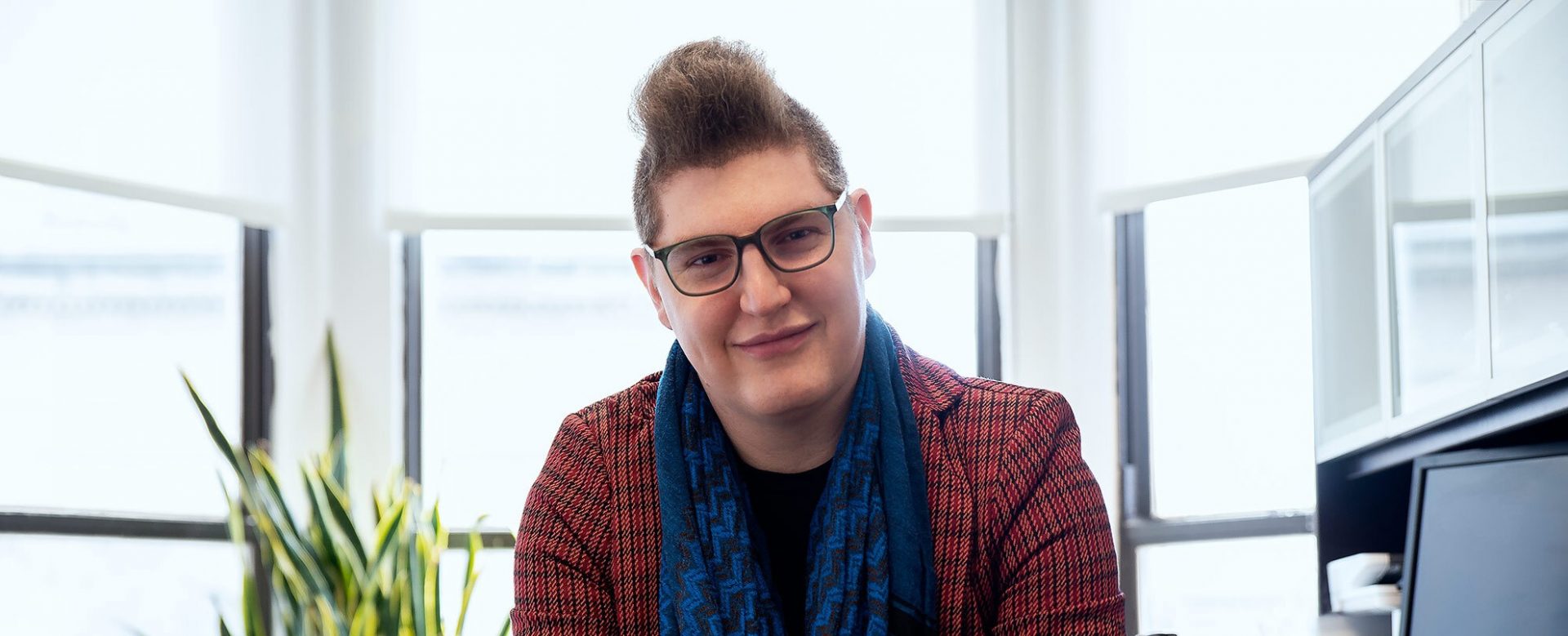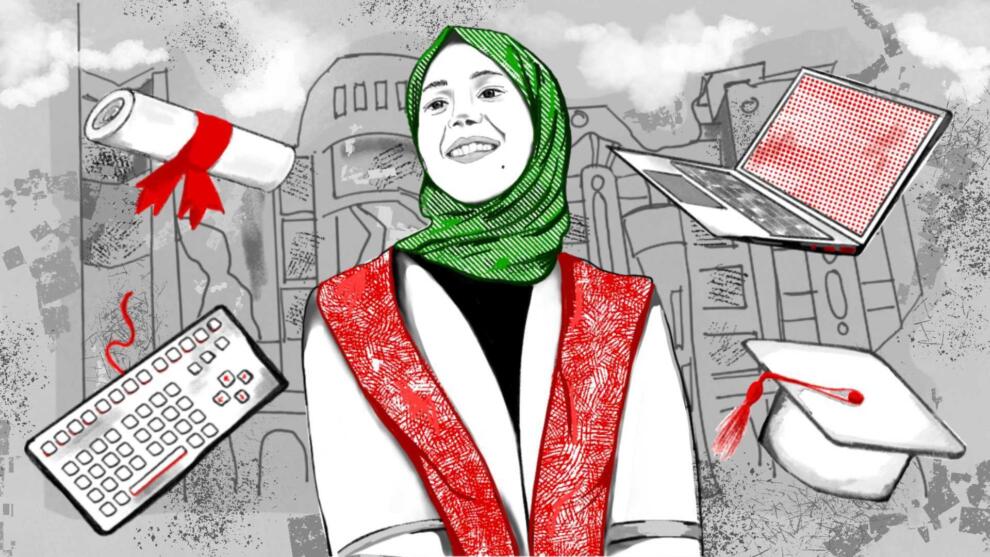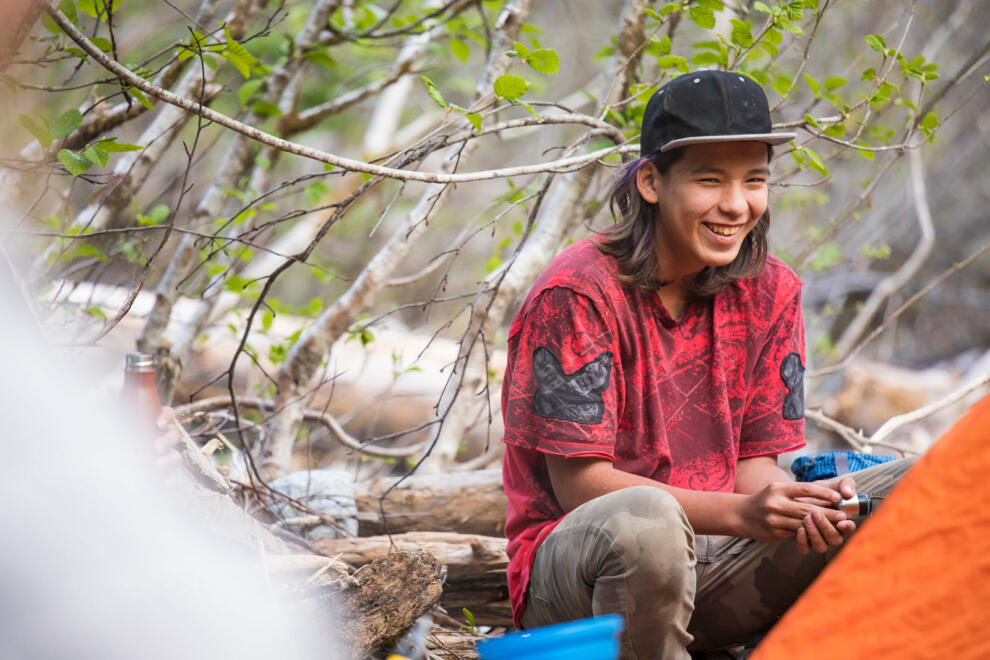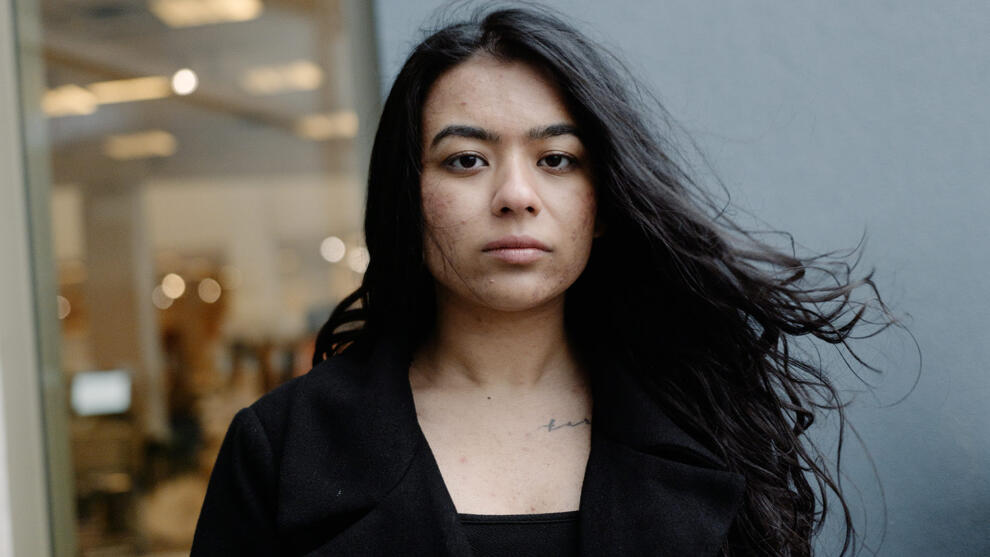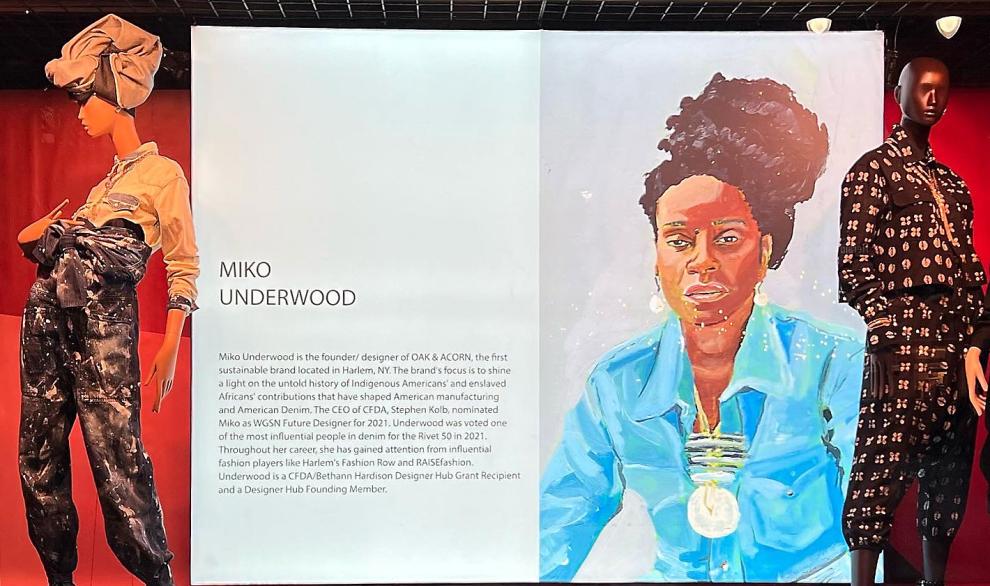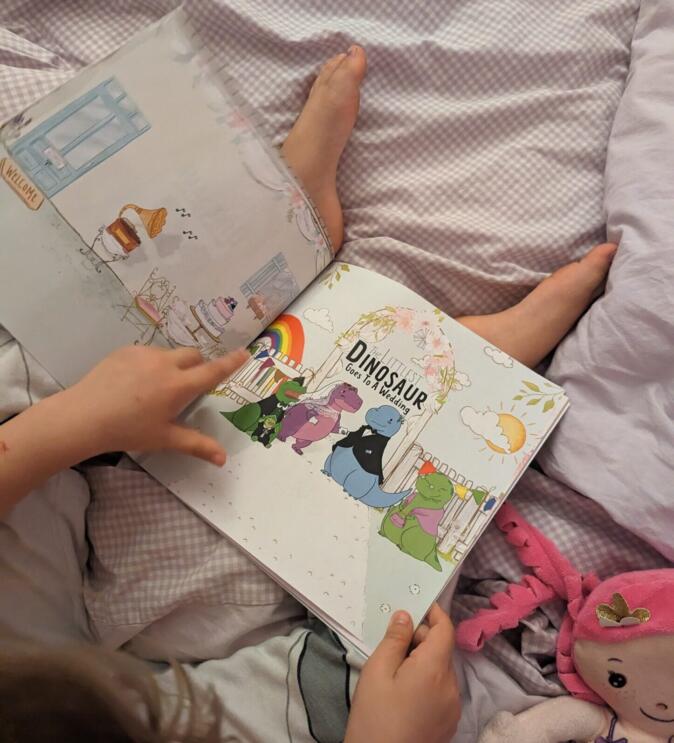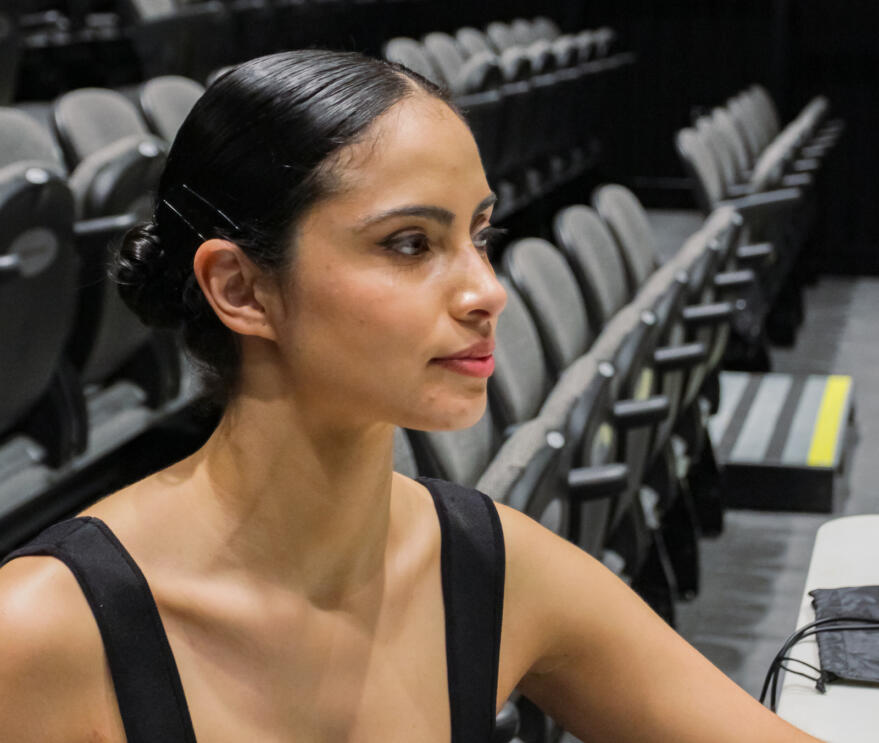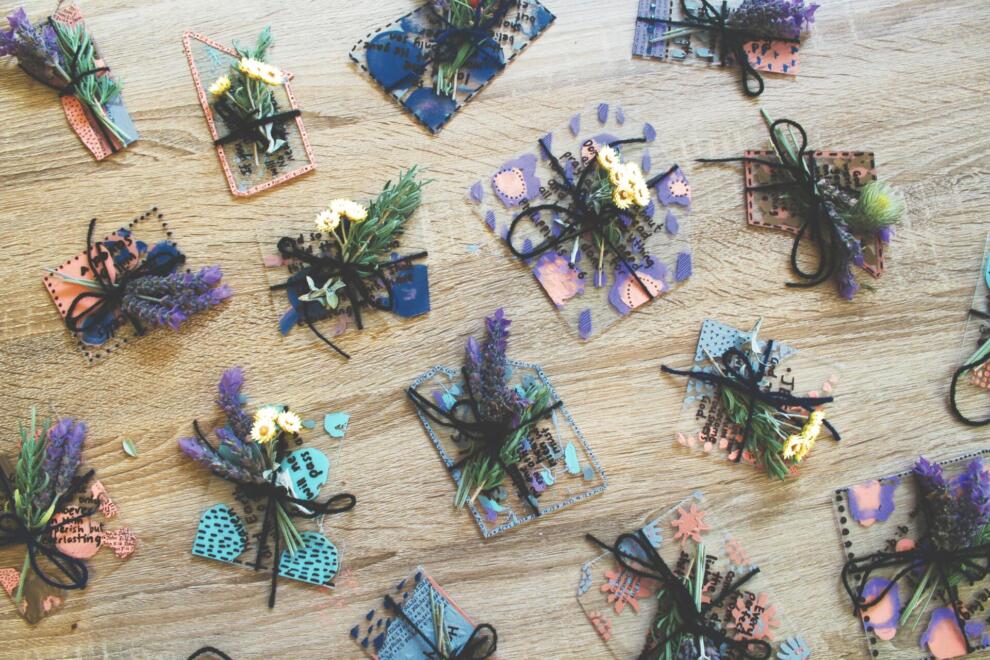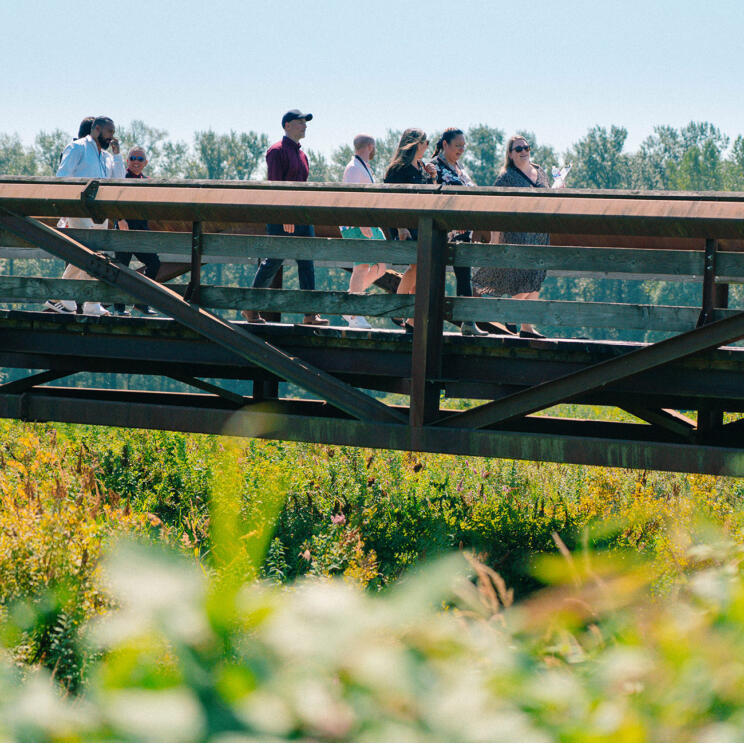Staying Alive
Photography by S.Flynn
Her community faces a deadly epidemic of violence and trauma. To defend it, trans woman Stephanie Skora is using the most powerful weapon she has: activism.
Before she came out as a lesbian, genderqueer trans woman, Stephanie Skora was a sensitive, self-conscious Jewish kid living in a conservative suburb of Chicago. Although she was oblivious to the future threats she would experience because of her gender identity—trans people are over four times more likely than cisgender people to be victims of violent crime, according to a 2021 study by the Williams Institute at UCLA School of Law—she was acutely aware of those she was born facing because of her race and religion.

“I grew up with a very unique experience of my own racialization,” says Skora, a millennial whose parents were mid-generation baby boomers when they had her. “Because Jews didn’t assimilate into whiteness until the 1960s, my father—who was born in the 1950s—was not born a white person. He was born a Jew. My grandfather, who was born in the 1910s and lived to be 98, spent more than half his life living as a Jew instead of as a white person. I was the first person in my family who had an opportunity to be both white and Jewish.”
Experiencing the world as part of the white majority while simultaneously feeling persecuted by it left a deep impression on Skora, who existed with a sense of constant disquiet, as if she were traversing life with a sharp pebble in her shoe.
“Basically, the entire history of Judaism is people trying to kill us and never completely succeeding,” continues Skora, who grew up hearing stories about family members who were assaulted and discriminated against because they were Jewish. “And so, the past Jewish racialization of my family and the cultural trauma of that informed my own relationship to whiteness.”
Her racial self-awareness created an appetite for social justice that grew even stronger when Skora came out as LGBTQ. “When you start to realize that you’re a trans person, the first thing you learn is, ‘OK, this is probably who I am.’ Unfortunately, the second thing a lot of trans people learn is how dangerous it is to be themselves,” Skora says. “When I came out as trans, I gained yet another identity that existed constantly in precarity. And because I was raised with a deep sense of Jewish identity and Jewish culture, I recognized already that we in marginalized communities have a responsibility to fight back, to take power for ourselves, and to make sure that we are always in solidarity with other oppressed peoples.”
Actualizing Activism
What began as awareness of inequities turned into action against them when Skora was a sophomore at the University of Illinois at Urbana-Champaign. When she came out as lesbian trans woman, her parents disowned her. Eager to build a chosen family from the ruins of her biological one, she therefore began searching for community. When she couldn’t find one to join, she created one.
“I was looking and looking and looking, and I couldn’t find any other people who were like me. So I sort of just got up one day and said, ‘I’m going to do it myself,’” says Skora, who subsequently established the university’s first-ever organization for trans people, the Campus Union for Trans Equality and Support (CUTES). During her undergraduate career, CUTES sought and obtained for students trans-inclusive health care, gender-affirmed housing, gender-neutral bathrooms, and gender-affirming names on student IDs and diplomas.
“Almost overnight, I went from being this person who was still figuring out who she was to being the leader of a community,” continues Skora, whose group attracted not only students, but also adults from the surrounding county. “We attracted people from all over who drove 30 minutes to campus once a week to go to our meetings. It was just an explosion of passion and of advocacy, and a deep, deep need for community.”
Through her trans activism on campus, Skora also became involved in the Black Lives Matter movement, in labor organizing and in the Palestinian solidarity movement, and upon graduating was elected board president of The Uniting Pride (UP) Center of Champaign County, a community center serving LGBTQ people in South Central Illinois.
“With the help of other board members, I basically ran that place for a year,” Skora says. “I had always been an organizer, and I had always had a passion for politics and activism. But being in the trenches at a nonprofit with no resources and no staff, in a one-room office in the basement of another community center’s building—that’s how I really learned my craft.”
Learning from Defeat
Although she’d always had a passion for social justice, Skora didn’t set out to become an activist. Instead, she wanted to be a human rights lawyer. While she was in school, however, she experienced a turning point that helped cement her activist future: The University of Illinois at Urbana-Champaign had extended a tenured job offer to Palestinian-American Professor of American Indian Studies Steven Salaita. It later revoked that offer, however, when Salaita made anti-Zionist tweets criticizing Israel for its actions during the 2014 Gaza War that killed more than 2,000 Palestinians.
“They took his job away simply for being outraged at the violence the Israeli state was committing towards his people. And so, this international movement exploded to get this man his job back, and I became the undergraduate leader of it on our campus,” Skora says. “I had been this trans liberation leader on campus, but this was the first time I got the chance to plug into an international movement with experienced activists who I could learn from and growth with and be in community with.”
Ultimately, the pro-Salaita movement failed. For Skora, however, it was still a victory. “It was the first time I was involved in something and lost. And that sucked. But I had community around me that helped me get through it,” she continues. “It sparked an organizing renaissance in Urbana-Champaign. And through that experience, I learned how to relate to myself as a Jewish person who didn’t just have a cultural history of experiencing oppression, but could use the history of my people to prevent violence from happening to others.”
An Urban Evolution
Skora took that lesson with her when she eventually moved back to Chicago. There, she met LaSaia Wade, founder and executive director of Brave Space Alliance, the first Black-led, trans-led LGBTQ community center on Chicago’s South Side. When Wade opened Brave Space Alliance in 2017, she asked Skora to join its staff, which commenced a new chapter in her activist career based on a new kind of organizing.
“The reality of big-city organizing is completely different than the reality of scrappy, nose-to-the-ground rural organizing,” Skora explains. “There’s a lot of sectarianism in the city—a lot of ideological clashing over tiny, tiny issues. There are a lot of cliques, and a lot of spaces where there’s lots of talking and very little action. And when people come together to do something amazing and powerful, we’re up against giant structures that have more resources than we could ever dream of. It’s really, really hard to win.”
Because large-scale victories are so difficult to achieve in a city as large and diverse as Chicago, Skora’s activism in some ways has evolved from a macro to a micro focus.
“It’s impossible for us to organize one coherent community in Chicago because we aren’t one coherent community. We’re a bunch of tiny communities who have some common goals and interests, but otherwise have problems that are really unique to our individual circumstances and where we live,” Skora says. “So in a lot of ways, I’ve stopped doing trans liberation organizing and started doing trans liberation work.”
If the goal of “organizing” is to impact systems and policies, then the goal of “work” is to impact people.
“We’re not organizing trans people in Chicago,” Skora says. “We’re keeping them alive, and we have to do that on the individual level.”
Brave Space Alliance helps BIPOC trans individuals survive—and thrive—with a multitude of programs and services, including: LGBTQ support groups; an LGBTQ-focused food pantry; an employment justice program that helps trans people find employment in unionized workplaces; gender-affirming spaces with free wigs and makeup for transfeminine people and free packers and binders for transmasculine people; free electrolysis for community members who need hair removal services; a trans relief fund that gives microgrants in the form of direct cash payments to trans people who have been economically impacted by the COVID-19 pandemic; and a funeral fund to ensure that victims of trans-antagonistic violence are buried under their chosen name and gender. It’s also starting an HIV program for sex workers, and is developing a transitional housing program for trans people who are housing-insecure or experiencing homelessness.
Although programs and services aren’t as noisy as protests and movements, as a form of activism they’re just as impactful, Skora insists.
“If we give one person the resources they need to stay alive, they’ll tell everyone they know,” she says. “That creates knowledge and hope for people who feel like they don’t have anywhere to go, and that makes a huge difference in the community.”
In a world that’s beset with violence against trans people, there are plenty of reasons for pessimism. The difference she’s making, however, is a constant reminder that optimism perseveres.
“I don’t know if the change we want and the freedom we need is possible anymore. I think it might be too far gone. But until we know for sure, we owe it to each other and to ourselves to stay alive; to keep moving; to be in community; and to be in loving, powerful, incendiary solidarity with each other,” Skora concludes. “That way, if the revolution does come in our lifetime … we are ready and able to join the fight, because we stuck around long enough to see it.”
I don’t know if the change we want and the freedom we need is possible anymore. I think it might be too far gone. But until we know for sure, we owe it to each other and to ourselves to stay alive; to keep moving; to be in community; and to be in loving, powerful, incendiary solidarity with each other.
– Stephanie Skora

How You Can Help
- Donate to queer- and trans-affirming organizations like Brave Space Alliance that rely on private donations to provide support and services to the LGBTQ community. If you can afford it, set your contribution up to be a monthly, recurring donation.
- Become an advocate by joining a trans liberation group in your local community, or by contacting elected officials to oppose laws that are anti-trans and/or support laws that are trans-affirming.
- Start your own organization or movement to support trans liberation and dignity in communities that lack trans-affirming entities—especially communities of color. If you’re white, pass the baton to BIPOC trans individuals when they eventually join your cause and express a desire to help lead it.
Purchase Issue 03
After a year of chaos and uncertainty, our mission for ISSUE 03 of RIPPLE OF CHANGE is to spark inspiration in our readers. There was a lot of talk of coming together, acting in solidarity for our peers, and putting others before ourselves to overcome the challenges put before us. Now, we put that to the test.
Order your copy of Issue 03 today!
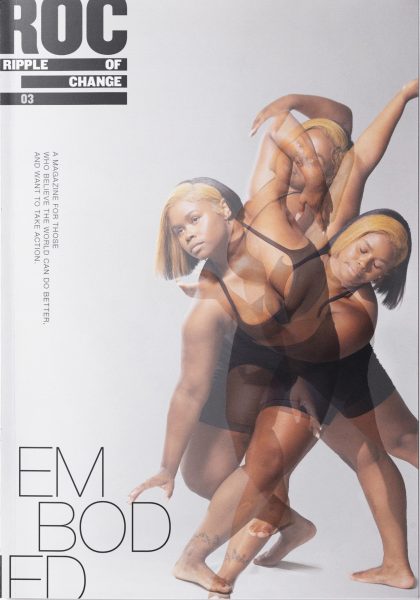

Matt Alderton
Contributor (he/him)
Matt Alderton is a freelance journalist who writes regularly about social justice, sustainability and humanitarianism. A writer and reporter for nearly two decades, he has covered everything from sustainable housing, smart cities and immigration to marriage equality, disability rights and the criminalization of mental health. Matt has a bachelor’s degree in journalism from Northwestern University’s Medill School of Journalism and a master’s degree in creative writing, also from Northwestern. Originally from Denver, which boasts 300 days of sunshine a year, he now resides in Chicago, which boasts three.
